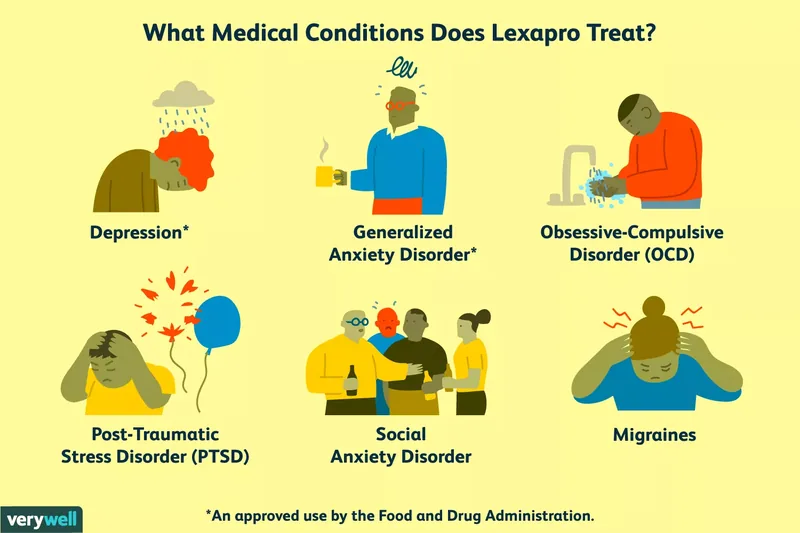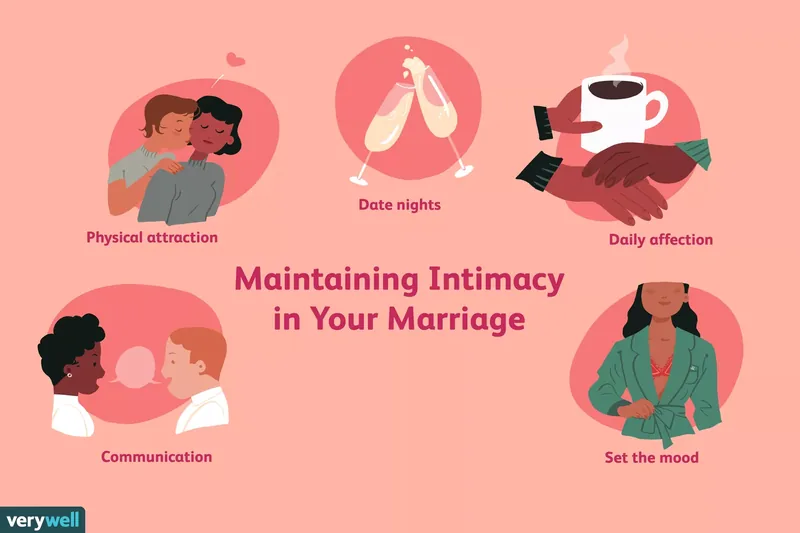In an increasingly connected yet often superficial world, the yearning for genuine human connection is stronger than ever. Surface-level interactions, while easy, rarely satisfy our innate desire to truly understand and be understood. This is where conversation starters meaningful to the soul become invaluable tools. Moving beyond polite pleasantries, these thought-provoking prompts open doors to deeper understanding, foster empathy, and cultivate the kind of authentic relationships we all crave. By asking thoughtful questions, we invite others to share their perspectives, fears, dreams, and values, laying the groundwork for profound and lasting bonds.
Deep conversation starters are questions designed to spark genuine emotional and intellectual engagement, helping individuals connect on a more significant level. They transcend everyday topics, exploring personal histories, beliefs, aspirations, and feelings. Research consistently highlights the profound benefits of deep interpersonal communication for mental well-being and relationship satisfaction (Harvard, 2024). In 2025, as digital interactions continue to evolve, mastering the art of in-person meaningful dialogue is more crucial than ever for building resilient relationships.
Deep Conversation Starters to Forge New Connections
When meeting someone new or looking to deepen an existing acquaintance, surface-level questions about the weather or recent events often fall short. To truly understand the person across from you, you need conversation starters meaningful enough to reveal their unique character and perspective. These questions are designed to gently probe their inner world, highlighting their passions, challenges, and core identity. They move beyond factual information to uncover the essence of who they are, making the interaction memorable and fostering a sense of genuine connection from the outset.
Consider these prompts to help you navigate initial interactions with depth and sincerity:
- What quality do you value most in yourself, and why is it important to you?
- Beyond necessities, what’s one intangible thing you simply cannot live without?
- Who has been your most significant role model, and what lessons did they impart?
- If your life were a movie, which film would best capture its essence and why?
- Which song resonates most deeply with your life's journey or current mood?
- What’s a healthy habit you’ve cultivated that significantly improved your well-being?
- Conversely, what’s a habit you’re actively trying to break or improve upon?
- What is a common source of stress in your daily life, and how do you typically manage it?
- What is a deeply held fear you’ve had to confront or are still working through?
- When was the last time you experienced a moment of profound emotional release, perhaps through tears or overwhelming joy?
- If you could have a candid conversation with any historical figure, who would it be and what would you ask?
- What’s a skill or hobby you’ve always wanted to learn, and what holds you back?
These questions are not just about gathering facts; they're about inviting vulnerability and shared humanity. They encourage introspection and provide a window into the person's values and experiences, paving the way for truly meaningful conversation starters. By asking these, you signal a genuine interest in their inner world, fostering trust and rapport far more quickly than traditional small talk.
Unlocking Insights into Love and Relationships
Exploring the landscape of love and relationships requires a delicate touch, yet these are often the areas where we seek the deepest understanding of others. These conversation starters meaningful to the heart allow individuals to share their perspectives on intimacy, partnership, and emotional connection. They help uncover past experiences, current beliefs, and future aspirations regarding romantic bonds, fostering a profound sense of shared humanity and understanding. By delving into these topics, you can gain invaluable insight into how someone approaches commitment, vulnerability, and shared life.
Here are some profound questions to explore the intricate world of love and relationships:
- Describe your first memorable experience with love. What did it teach you about yourself and others?
- How would you define love in your own words? What does it truly mean to you?
- What are your thoughts on "love at first sight"? Do you believe in instant, profound connection?
- The concept of soulmates – a single destined partner – what's your take on it?
- Beyond superficial traits, what three qualities do you value most in a partner, and why?
- What do you believe are the absolute key ingredients for a truly successful and lasting relationship?
- What’s a non-negotiable deal breaker for you in a romantic partnership?
- Share a story about your most memorable date, for better or worse. What made it stand out?
- Describe your ideal romantic evening or a perfect date scenario.
- How do you prefer to give and receive love? Understanding love languages can be a powerful meaningful conversation starter.
- What lessons about love and relationships did you absorb from your family growing up? Are there any ideas you're actively unlearning or redefining?
- Who are the couples, real or fictional, that you admire as relationship role models? What makes their bond inspiring?
- What are your long-term relationship goals? How do you envision a shared future with a loved one?
- Recount a time when you felt completely loved and understood in a relationship. What specific actions or words made it special?
- Have you ever experienced profound heartbreak or unintentionally caused significant pain in a relationship? What was the aftermath?
- Describe the most challenging disagreement you’ve faced in a relationship and how it was resolved.
- What is your biggest regret concerning a past relationship, and what did you learn from it?
- How do you navigate current relationships with ex-partners, if at all?
- What's the single most valuable lesson you've gained from your romantic experiences?
- In a healthy relationship, how do you balance personal independence with shared togetherness?
These questions invite introspection and provide a rich tapestry of experiences and beliefs, making them excellent conversation starters meaningful for building emotional intimacy. They allow individuals to reflect on their past and articulate their hopes for the future, strengthening the bonds of connection.
Exploring Aspirations, Values, and Future Visions
Understanding someone's dreams, wishes, and core values provides a profound glimpse into their motivations and priorities. These conversation starters meaningful to personal growth help uncover what truly drives an individual, what they aspire to achieve, and the principles that guide their life choices. By discussing these deeply personal topics, you create an environment of trust and mutual respect, fostering connections that are rooted in shared understanding and appreciation for each other's unique journeys. It's a way of looking beyond the present moment and into the future they envision for themselves.
Engage in these thought-provoking questions to uncover aspirations, values, and future perspectives:
- What was your childhood dream job or calling? How does it compare to your current path?
- If you could pursue any profession without constraints, what would be your absolute dream job today?
- Where do you envision yourself in the next decade? What milestones do you hope to achieve?
- If you were granted three genuine wishes right now, what specific things would you ask for?
- If financial limitations were non-existent, what ultimate experience or project would you dedicate your life to?
- Is there a particular skill you are eager to learn or significantly improve upon in the near future?
- How do you define happiness for yourself? What does a truly happy life look like to you?
- What are the three things you are most profoundly grateful for in your life at this moment?
- What are some of the biggest challenges or obstacles you are currently navigating?
- What kind of legacy or impact do you hope to leave on the world? How would you like to be remembered?
- If you could solve one global problem, what would it be and why?
- What personal value or principle do you hold most sacred, and how does it influence your decisions?
- What does success truly mean to you, beyond conventional metrics like wealth or status?
- If you could give your younger self one piece of advice, what would it be?
- What is a hidden talent or passion you possess that few people know about?
These questions provide powerful conversation starters meaningful for exploring a person's inner compass. They encourage reflection on purpose, values, and the direction they want their life to take, deepening your understanding of their core identity. Engaging with these topics builds a stronger foundation for any relationship, as it reveals the driving forces behind their existence.
Reflecting on Childhood and Formative Years
Our childhood and upbringing profoundly shape who we become, influencing our beliefs, behaviors, and relationships. Discussing these formative years offers a unique lens through which to understand an individual's present self. These conversation starters meaningful to personal history invite reflection on significant memories, family dynamics, and the environments that molded them. By exploring these topics, you gain insight into the roots of their personality, their emotional landscape, and the experiences that have made them uniquely them. This process can forge deep empathy and connection.
Use these prompts to explore the impactful period of childhood and upbringing:
- What is your most cherished memory from your childhood? What made it so special?
- Describe your relationship with your parents and siblings. How has it evolved over time?
- What qualities do you admire in your parents or siblings, and what characteristics present more challenges?
- How did your birth order – oldest, youngest, middle, or only child – influence your personality or family role?
- What were holidays, family traditions, or vacations typically like in your household growing up?
- How did your family celebrate important milestones and occasions? Were there unique rituals?
- What does the concept of "home" truly mean to you, beyond a physical address?
- Is there a specific meal or dish that instantly transports you back to your childhood home?
- What was your hometown like, and what significant memories do you associate with growing up there?
- Beyond family, who were the influential figures—teachers, mentors, friends—who significantly shaped the person you are today?
- What was a challenging experience from your youth that ultimately taught you a valuable lesson?
- If you could revisit one moment from your childhood, what would it be and why?
- What was a common piece of advice or a recurring saying in your family?
- How did your family handle disagreements or conflicts?
- What cultural or community traditions were part of your upbringing?
These conversation starters meaningful to one's past are powerful tools for building empathy and understanding. They allow for shared stories and reflections on the experiences that laid the foundation for adulthood, creating a rich context for current personality and behaviors.
The Power of Meaningful Dialogue vs. Casual Small Talk
While small talk serves its purpose in breaking the ice and establishing initial comfort, it rarely leads to the deep, resonant connections we yearn for. In 2025, with increasing digital distractions, the deliberate choice to engage in meaningful conversation starters is a powerful act. The difference lies in the depth of emotional and intellectual engagement. Meaningful conversations are characterized by vulnerability, active listening, and a genuine desire to understand, fostering strong emotional bonds. Small talk, conversely, is lighter, more casual, and primarily serves to establish common ground without revealing much personal depth.
Sabrina Romanoff, PsyD, a clinical psychologist, aptly states, "Meaningful conversations help us understand ourselves and the people around us better. They involve sharing important aspects of ourselves, and actively listening to, validating, and connecting with others." The distinction between the two forms of dialogue is crucial for anyone seeking to enrich their relationships.
Meaningful Conversations:
- Deep and Emotional: They delve into personal experiences, feelings, and beliefs.
- Complex Thought: They require more mental effort and introspection from participants.
- Vulnerability Required: Participants must be willing to share genuine thoughts and emotions.
- Selective Audience: Typically reserved for a select few close people or those with whom one seeks a deeper bond.
- Build Strong Bonds: They are instrumental in fostering emotional intimacy and lasting relationships.
Casual Small Talk:
- Lighthearted and Casual: Focuses on neutral, non-controversial topics.
- Minimal Effort: Doesn't require deep thought or emotional investment.
- Shields Vulnerabilities: Keeps personal information private, maintaining a comfortable distance.
- Broad Audience: Can be engaged in with just about anyone, from strangers to acquaintances.
- Establishes Common Ground: Helps break the ice and sets the stage for potential deeper connections.
Researchers have observed that while people benefit significantly from deep conversations, they often default to small talk due to an overestimation of potential awkwardness. This apprehension prevents many from experiencing the profound learning and connection that deeper dialogue offers. Yet, conversation is a vital source of learning and a cornerstone of society, allowing people to communicate norms, convey morality, share knowledge, and create shared understanding. The investment in conversation starters meaningful to participants is always worthwhile.
Mastering the Art of Meaningful Conversation
Initiating and sustaining meaningful conversations is a skill that can be honed, transforming casual interactions into profound connections. It requires more than just a list of questions; it demands a mindful approach, genuine curiosity, and a willingness to be present. In a world where distractions are abundant, truly focusing on another person's words and emotions is a gift. The goal is to create a safe space where both parties feel comfortable sharing, listening, and connecting on an authentic level.
Dr. Romanoff shares several key tips for cultivating truly meaningful conversations:
- Ask Open-Ended Questions: Instead of questions that elicit a simple "yes" or "no," formulate prompts that invite detailed narratives. Encourage the other person to describe their experiences, feelings, and the nuances of a situation. For example, instead of "Did you have a good day?", try "What was the most interesting part of your day, and why?"
- Embrace Vulnerability: Be willing to share aspects of yourself. Often, initiating with a personal anecdote or feeling can signal trust and encourage the other person to reciprocate. As Dr. Romanoff advises, "Opening up to someone and modeling the type of meaningful conversation you hope to have is a great way to help make them feel emotionally safe and willing to do the same."
- Cultivate Genuine Curiosity: Approach the conversation with an attitude of sincere interest. This isn't about interrogation but about a desire to understand the other person's world. Let your curiosity guide your follow-up questions.
- Practice Empathy and Perspective-Taking: Try to put yourself in the other person's shoes. Consider their background, experiences, and potential feelings. This thoughtful approach allows you to respond with greater understanding and compassion.
- Listen Actively and Ask Follow-Up Questions: True listening goes beyond merely waiting for your turn to speak. It involves fully absorbing what the other person is saying, both verbally and non-verbally. Asking clarifying or elaborating follow-up questions demonstrates engagement and validation.
- Offer Emotional Validation: Let the person know their feelings and experiences are understood and accepted. Phrases like "That sounds really challenging" or "I can see why you'd feel that way" can make a significant difference in making someone feel seen and heard.
While it's natural to feel a touch of nervousness when initiating deep conversations, especially with someone new, remember that the rewards far outweigh the discomfort. Each time you engage with conversation starters meaningful to both parties, you're building a stronger foundation for intimacy and trust. These interactions not only enrich your relationships but also offer profound opportunities for self-discovery and personal growth. The more you learn about others, and the more you share about yourself, the easier and more natural these intimate exchanges will become, fostering the kind of lasting connections that truly matter in life.











